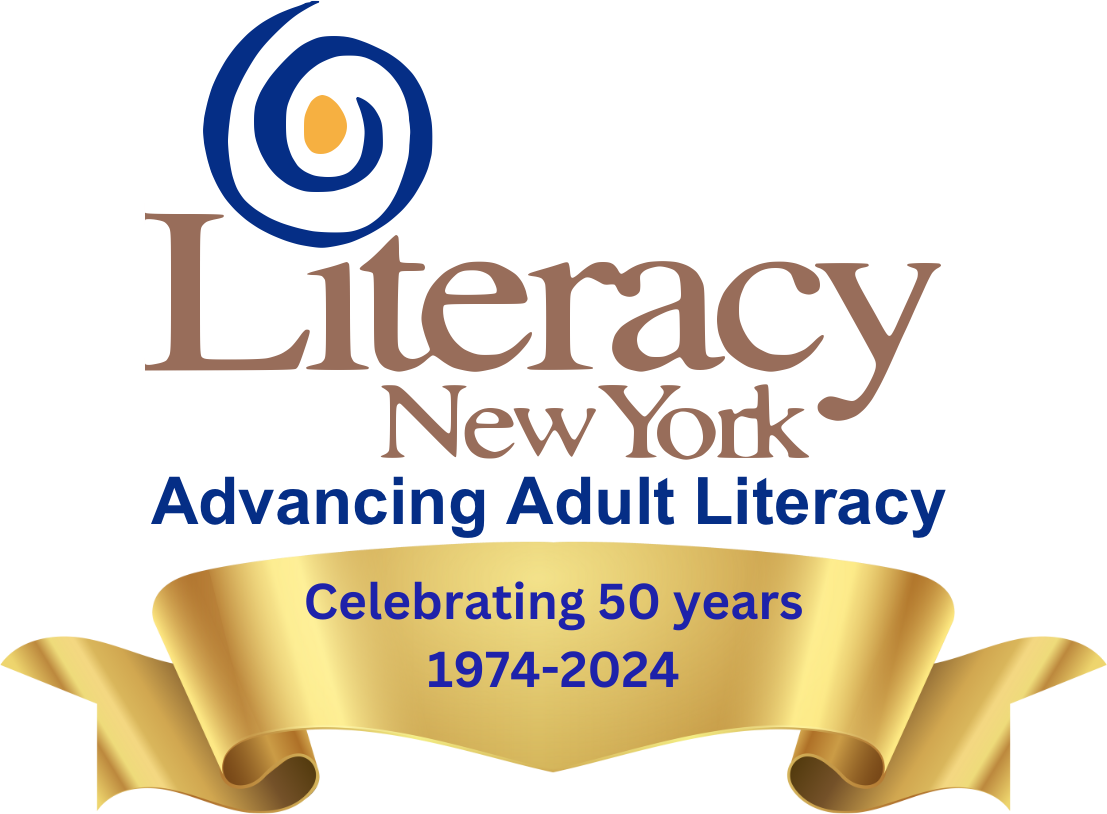Featured News - Current News - Archived News - News Categories
LNY Looks At Creative Approaches to Adult Literacy
|
These models serve as potential solutions to the nation’s illiteracy problem. LNY will continue to track—and hopefully help providers adapt—successful paradigms in New York State. Stay tuned!
Here’s a story from Washington, DC: |
A high school dropout, Nicole Dickey, adds fractions in math class at a charter school for adults, hoping to earn her high school credentials and find a good paying office job.
“My life has changed, I am here to make it better,” said Dickey, 39, who left high school after she became pregnant and spent the next two decades working low-paying jobs, raising five children, living on government assistance and struggling with alcoholism.
Faced with high illiteracy rates among city residents and an extremely competitive job market, the nation’s capital is experimenting with adult education. The district is running more than a dozen adult schools, both charter and traditional public ones that together serve about 5,100 students, both disconnected youth and older adults. And despite the political controversy surrounding Education Secretary Betsy DeVos’ push to expand school choice, the charter and the traditional public school sectors in the District of Columbia cooperate in adult learning.
Dickey’s story is part of a larger picture nationwide. Even though high school graduation rates have been rising in recent years, 10 percent of American adults aged 25 or over don’t have high school credentials, according to government data.
With nine out of 10 jobs today going to college graduates, not having a high school credential is strongly associated with unemployment, poverty, poor health and eventually similar problems for one’s children.
Across the country, adults looking to earn high school credentials usually take classes at community colleges or community-based organizations to pass the General Education Development test, known as the GED.
Unlike those options, which often carry fees, the adult schools in the District of Columbia are free and open to residents age 16 or 17, depending on the school, and older who want to earn high school credentials or further their skills. One student hunched over a math problem at Community College Preparatory Academy on a recent morning was 85 years old.
That’s where Dickey labors on math and sees new possibilities. “I want to work in an office building,” she said. “I want something different. I want to have options.”
In the city, more than 72,000 residents 25 and older don’t have high school credentials, according to 2016 census data.
The first adult school in the city opened in the 1970s, and the sector has been growing in recent years. The D.C. Public Charter School Board has opened four new schools since 2012 and the D.C. Public Schools this year spent $4 million to revamp its four adult schools.
While the adult charter schools tend to focus on older residents, traditional adult schools cater to residents aged 17-22, who receive a high school diploma if they complete the program.
The schools have had mixed success, in part because older students also are balancing families and jobs.
At Luke C. Moore High School, a public school that serves young adults, the average graduation rate is 49 percent, significantly below the nation –and D.C. — average.
At Community College Prep, the GED completion rate is 50 percent. Nationwide, GED completion can range from 39 to 80 percent, according to several studies that used different methodology for tracking success rates.
Such comparisons of success rates aren’t the full measure, said Julie Strawn with Abt Associates, a research and consulting firm, because many other factors count, such as students’ initial skills and the barriers they face.
“Whether that’s low or high depends a lot on where the students they are serving are starting from,” Strawn said.
This year, the district launched a leadership training program at Georgetown University for 20 principals of D.C. regular and adult schools, both from the traditional public and charter sectors, to study together and foster cooperation. And Scott Pearson, executive director of the D.C. Public Charter School Board, which runs 10 adult charter schools in the city, recently joined public schools’ chancellor Antwan Wilson on a tour of Luke C. Moore so they could learn together about educating adults.
Aniya Smith, 18, transferred to Luke C. Moore after having a child last year. As she attended a school coaching session, her 1-year-old daughter Riley prepared to nap in the onsite nursery. Besides help with child care, the school offers twice-a-week mentorship and coaching sessions to help students, who often experience trauma at home and in their communities, both academically and emotionally.
“I am getting more help than I would have in any other schools,” said Smith, who wants to become a cosmetologist. “Since I am a mother … it’s making things easier.”
Students at Community College Prep attend three-hour sessions on weekdays, choosing morning, afternoon or evening classes depending on their family and work schedules. The sessions alternate between live instruction and online courses and tests. Besides GED preparation, the school also offers certification programs in IT and other fields, also for free.
Jarell Richey, 35, is enrolled in an IT program at the school. “There is light at the end of the tunnel, there is hope,” said Richey, who was paralyzed in a shooting and served six years on drug charges. “Everything is OK.”
By Maria Danilova | The Associated Press
November 24, 2017 at 6:47 pm




